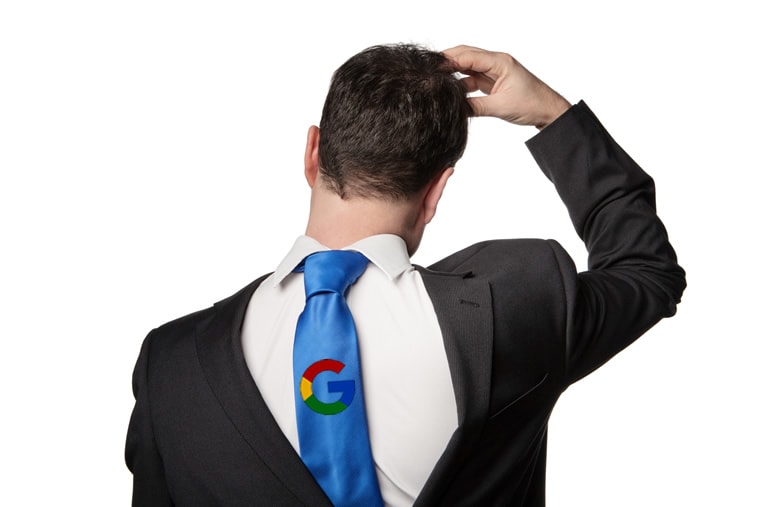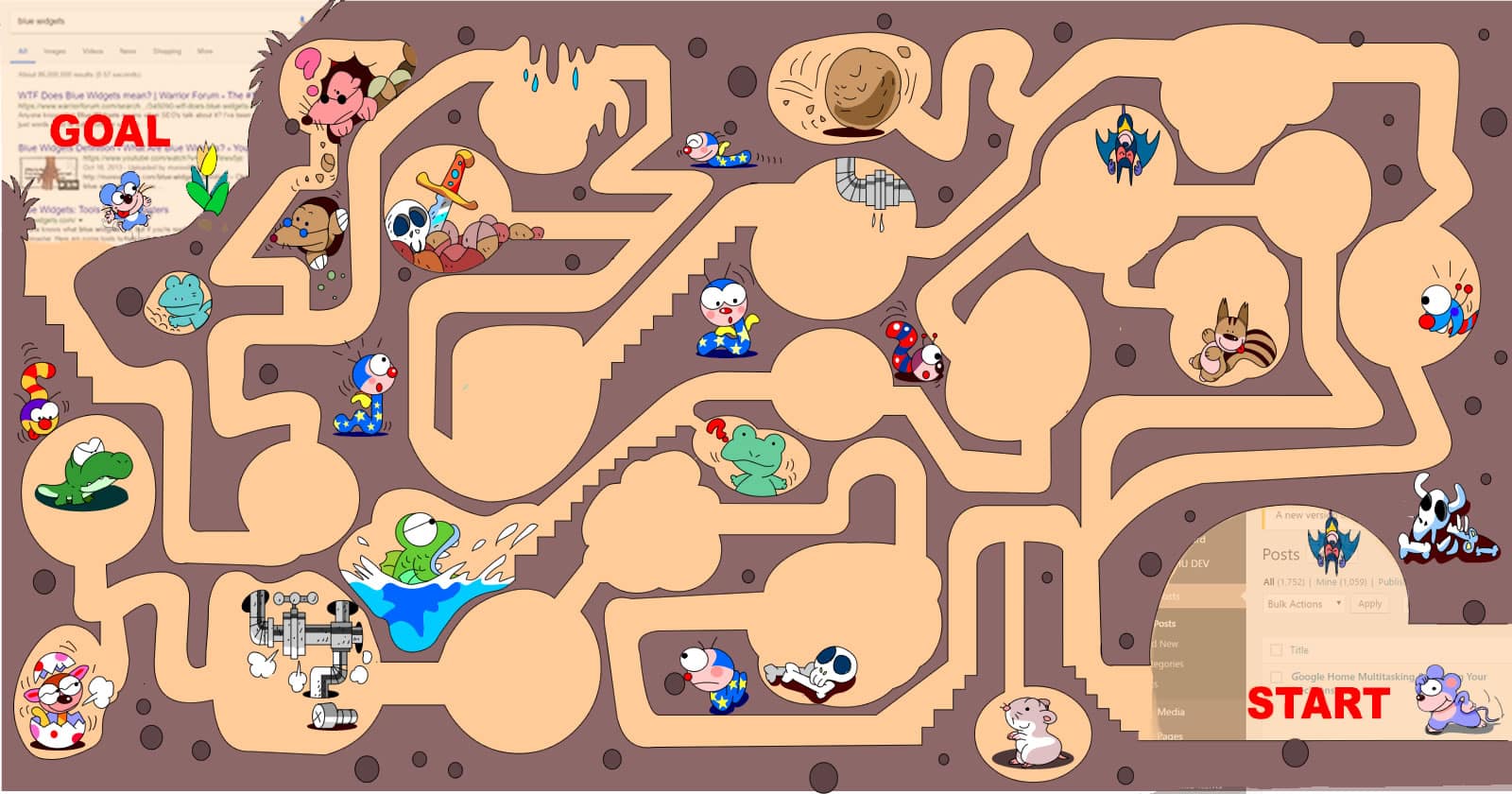You know you do it.
You hear rumors on Facebook or Twitter that there’s been some type of Google update (let’s call it Barney) or notice some sudden movement in one of the queries you check obsessively and the first thing you do is start spot checking rankings while your tools are running ranking reports.
Maybe you take a moment to rush to Search Console and see if there’s anything telling in your query data there. But darn it… the data isn’t fresh enough.
So off to Moz or Algoroo or one of the other SERP monitors to see what they tell you prior to checking if Barry Schwartz has published anything about it yet.
Yep, you know you do these things. And if I didn’t do them too I wouldn’t know the routine so well.
And its trappings.
There are serious dangers inherent in just these simple actions, not the least of which is what they represent.
To make matters worse, Google is being less upfront about their updates than they have been in the past, leaving our chasing to guesses and hearsay.
Here’s why.
Danger 1: Losing Sight of the Goal

Easily the number one danger of chasing Google’s algorithm is losing sight of the big picture.
The goal of SEO, with very few exceptions, is to rank over time not simply for one short duration.
That means we need to focus on what the search engines will be doing more than what they have done.
To be clear, knowing what Google is doing with their algorithm can provide some insight into areas the search engines are paying attention to but we need to look at it as part of a broader picture.
The question we need to ask is not why they’re doing what they’re doing.
So, pay attention to Google’s algorithms to be sure. But ask the right question.
Danger 2: Anecdotal at Best
Unless you monitor tens or hundreds of thousands of keywords across virtually every sector, the ranking fluctuations you see will be anecdotal.
That is, you will be looking at a tiny snapshot of what’s going on around you and putting that into the context of what you have done lately or the things you know about the site(s) you’re working on.
Even if you’ve headed over to WebmasterWorld and compared notes with other webmasters you’ll be hearing mainly from those who lost positions and again, with their bias (and sometimes anger) thrown in.
Anecdotal conclusions in SEO are almost always worse than no conclusion.
If you know nothing you’ll plod along focused on what you know to be the best practices; if you draw anecdotal conclusions you’re as likely to make a bad decision as a good one and you’ll do it with a lot more conviction.
Danger 3: They Keep Going and Going…
Let’s say you nail it. Your anecdotal observations pay off and you’re right.
Google’s algorithm update increased the value of anchor text in links (or whatever you concluded) – fantastic.
How long is it going to take you to act on this?
How long will it take Google to find your work and apply it to their results?
How many more Google algorithm updates will happen between now and then?
Even if you manage to guess right there are going to be more updates that apply different goals and signals – so which do you focus on?
Which brings us to a related issue with chasing Google’s algorithms.
Danger 4: Sometimes Google Is Wrong

I know, I know, half of you think that’s blasphemy and the other half have been doing SEO for more than six months.
Remember, these are the same folks that pushed Google+ in 2011, the Florida Update, and are constantly pushing and pulling tests in-and-out of the knowledge panel and rolling out and pulling back updates without any fanfare.
If you draw a conclusion about what an update resulted in, even assuming you’re right you may shift gears in a direction they determine isn’t beneficial and pull back from.
Google is constantly testing things. Algorithms are no exception.
Just because you see Google roll out something doesn’t mean it’s going to stick forever.
Danger 5: Sometimes We’re Wrong
It’s crazy to say but sometimes you might be wrong.
It’s OK, I have trouble admitting it too, but it happened once back in 1997 and I’m pretty sure it’ll happen again one day.
The danger here is twofold:
- You may put your attention in the “wrong” place chasing after what you think is going on when in fact it isn’t.
- You may do yourself damage focusing on something contrary to what’s actually happening.
Putting your attention on the wrong thing can be costly in time, but is the less damaging of the two.
If you’re obsessed with chasing Google algorithms and blindly follow where they lead you could well find yourself building anchor links at the “direction” of an update that impacted internal link weight passing or writing pages of landing page copy, catering to an algorithm that puts added weight on post-click metrics like visitor stick time.
It might sort-of look the same if you’re looking at it wrong, but will produce very different results.
In Summary
I’m not saying don’t pay attention to Google updates. But there’s a big difference between paying attention and chasing.
In the former, you’re treating the update as information, a potential sign of their evolution. In the latter, you’re blindly chasing what the latest update is focused on (hopefully) without the full context.
To put it simply, you’re acting as a competitor who’s constantly adding whatever features the market leader adds, right after they do. At best you’ll always be a step or two behind, except in this case your competitor is Google and they’ve got thousands of engineers working on the steps you’re chasing.
So, pay attention just as you would with a SERP layout change or statement on the value of Schema but treat it as a cup of information in a pool of data and rather than chasing it ask “why?”
If the end goal of the change you think you see (or heard in a forum or worse … Facebook) would benefit either the engine or the searcher, then add it to the array of information that you use to guide your decisions.
But never … ever … chase an update.
Image Credits
Featured Image: Adobe Stock and screenshots by Dave Davies
Losing Sight image: Adobe Stock
Google Is Wrong image: Adobe Stock and Google logo





